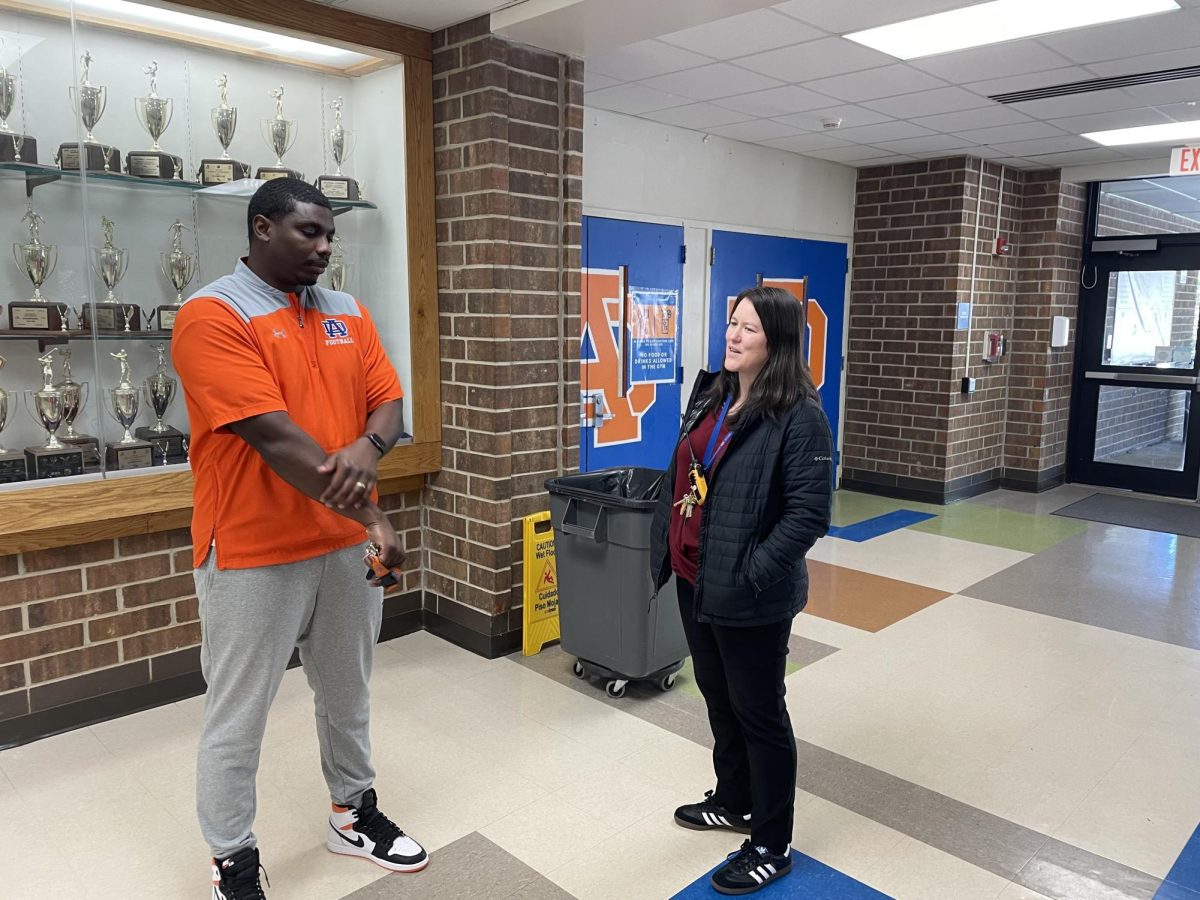Clothing is one of the most popular factors that make up American society, but most clothing from traditional retail stores has unethical and harmful environmental impacts on the world. Recently, light has been shed on the negative operations behind clothing retailers who use unethical means to make cheap, low-quality clothing to sell to unsuspecting consumers. Buyers should start to consider their ethical values when purchasing new clothes and should try to make their shopping habits as sustainable as possible.
Most popular clothing retailers, such as Forever 21, H&M, Zara, Topshop, GAP and more are labeled as fast fashion companies. This term describes retailers who sell cheap, trendy clothing that often comes in and goes out of style very quickly. Many of these fast fashion retailers introduce new products as often as multiple times a week in order to stay on top of trends. Fast fashion is seen as a way to achieve high-end, catwalk looks at a low price.
What most consumers do not realize is that the process behind the clothes they wear is a dirty one. Most fast fashion companies use cheap labor sourced from sweatshops in order to maximize their profits. Sweatshops are factories, often located in countries in the Middle East, Southeast Asia and southern Asia, where manual workers are employed. These workers are paid extremely low wages and often have to work long hours under unsafe and poor conditions. It is unethical to buy from fast fashion retailers because in doing so, consumers support the continued violations of human rights of the workers in these sweatshops.
In addition to the unethical practices used by fast fashion companies, harmful effects to the environment are made every day due to these processes. Since fast fashion retailers’ profits rely on the consumers desire to buy more clothes, they often design their clothing to fall apart or be easily damaged. This clothing that is often made with synthetic, petroleum-based fibers then ends up in the consumer’s trash, and eventually in a landfill, where the garments will take decades, if not more, to decompose.
A factor that only contributes more harm to this ever increasing issue is the fact that some of these cheaply made items contain harmful chemicals and carcinogens such as lead, pesticides, insecticides, formaldehyde and flame-retardants. When all of this is considered, it is not hard to believe that the average American throws away about 68 pounds of textiles per year, excluding clothing that is sold or donated. 68 pounds of clothing per American per year can add up to over 20,000 million pounds of textile trash per year containing harmful and hazardous chemicals. If every consumer stopped to consider the effects their buying habits have on the world they live in, the environment would greatly benefit and would still be intact for generations to come.
Fast fashion retailers are not the only one’s at fault in the clothing industry. More expensive brands such as Nike, Adidas and even high-end brands like Chanel, Prada, Givenchy, Fendi and Louis Vuitton use practices that harm the environment or cause animal abuse. These brands often prioritize the look of their clothing to make them. These high-end fashion retailers use viscose, a synthetic fiber, in their products, and manufacturing them can cause serious water pollution. According to EthicalConsumer.org, this process, “has led to human rights, as well as environmental harms.”

Women make clothes for fast fashion companies in an assembly line in a textile garment factory in Bangladesh.
With all of this considered, it is important to note the alternatives to fast fashion and unsustainable brands. When buying sustainably, consumers should first research a brand they are interested in purchasing from in order to understand the company’s ethics and sourcing of materials and labor. If a brand does not provide sufficient information about their processes, it is unlikely that they are sustainable. Sustainable fashion brands include Patagonia, Reformation, PACT, Alternative Apparel, Thought Clothing and more. Although these brands can be pricier than fast fashion retailers, it is important to understand why. These clothing brands often produce high-quality, ethically and environmentally safe items and are paying their employees a fair compensation for their work. For those who gravitate towards fast fashion because of the cheap prices, there are sustainable options for that, too.
Thrifting clothing from local charity shops or Goodwill is as or more affordable than shopping at fast fashion retailers. These stores offer donated and used clothing at a very low price for those who can either not afford new clothes or who simply wish to shop for cheap finds in a sustainable manner. Often, a percentage of the money made at these stores also goes to charitable causes. Although thrift stores often carry damaged or overworn clothing, it is still a sustainable alternative to fast fashion. When thrift shopping, a buyer should always try on and examine the piece they wish to buy to ensure its quality.
Other cheaper, sustainable options for purchasing clothing is buying from websites and apps designed for re-selling used clothing. Apps like Thredup, Depop and Poshmark allow users to sell and buy used clothing at a discounted and cheap price. Most clothing on these apps are curated and in good condition, which eliminates the time and searching needed for thrift shopping. When selling or buying clothes on sites like these, it is very sustainable because the clothing is definitely going to a new home, rather than ending up in a landfill. If a consumer wants to buy high-end clothing sustainably, sites like The RealReal offer luxury brand items at consignment prices.
The options for buying sustainably are endless. When consumers stop, think and research the brands they shop from, the world can be saved from the harmful effects of today’s society’s constant consuming. Fashion and clothing should be something everyone can enjoy, but not at the cost of the world and the people in it.


















Dasaun Robertson • Oct 23, 2019 at 8:06 am
This is an amazing article and gives great reasons on why people shouldn’t buy from fast fashion. Keep up the work, I would love to hear more from you.